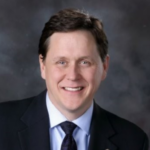Chairman Utke and members, thank you for the opportunity to testify today on Senate File 2704. I would like to thank Senator Bakk for bringing this legislation forward. My name is Matt Dean, and I am a senior policy fellow with the Heartland Institute. The Heartland Institute is a 37-year-old independent, national, nonpartisan, nonprofit organization whose mission is to discover, develop and promote free-market solutions to social and economic problems. Heartland is headquartered in Illinois and focuses on providing national, state and local elected officials with reliable and timely research and analysis on important policy issues.
Minnesota has some of the most restrictive laws on the expansion of medical facilities in the country. In the best of times, Minnesota’s hospital bed moratorium and certificate of need laws place a burden on hospitals who are trying to serve the needs of patients. They unnecessarily limit the supply of care and unfairly burden smaller communities who can not navigate the costly process.
In Sen Bakk’s district, the Cook Hospital and Care Center serves the community with 14 hospital beds and 28 in long term care for the town’s 574 people. In 2020, Cook lost over $1/2 million with the pandemic. That $500k could be the difference between making it and not for many critical access hospitals. That facility represents a major employer and critical need for aging residents. “If it wasn’t for the provider relief fund and paycheck protection program,” the administrator said, I’m not sure we would be making it.” If this facility needs to grow, going through the exclusionary process currently in place is likely impossible.
Not long after CON laws were instituted, legislators began to wonder whether the bureaucracies created to control the supply of care were making healthcare harder to find and more expensive to buy. A 2016 study at the Mercatus Center at George Mason University found that in the twelve CON systems studied, only one showed reduced cost, four showed no difference, and seven showed increased costs.
Because of the cost to grow, certificate of Need laws tend to drive expansion to larger, more centralized facilities, farther from home for people who live in rural areas. During COVID we have learned that smaller scattered facilities, closer to home for patients reduced the likelihood of contracting COVID19 in a care facility.
For the past twenty years, skepticism has progressively turned into legislation to reform, unwind and repeal certificate of need laws. Studies have consistently shown that states with certificate of need laws have more expensive healthcare that is less available for people in rural areas. The CON legislation, aimed at preventing a “medical arms race” was actually causing the disparities it was supposed to prevent.
This realization led to an uncommon bipartisan reform in healthcare policy. The Obama and Trump administrations both promoted reforms aimed at reforming certificate of need legislation.
Minnesota’s struggling critical access hospitals need help to survive. The most critical barriers to access are distance, coverage, money and staff. Heartland supports the work of this committee to address all four. Hospital moratoria and certificate of need laws should be carefully reviewed to help struggling hospitals and the people they serve.
Nothing in this testimony is intended to influence the passage of legislation, and it does not necessarily represent the views of The Heartland Institute. For further information on this and other topics, The Heartland Institute’s website provides a great link to many policy resources.
The Heartland Institute can send an expert to your state to testify or brief your caucus; host an event in your state, or send you further information on a topic. Please don’t hesitate to contact us if we can be of assistance! If you have any questions or comments, contact Heartland’s government relations department, at [email protected] or 312/377-4000.




